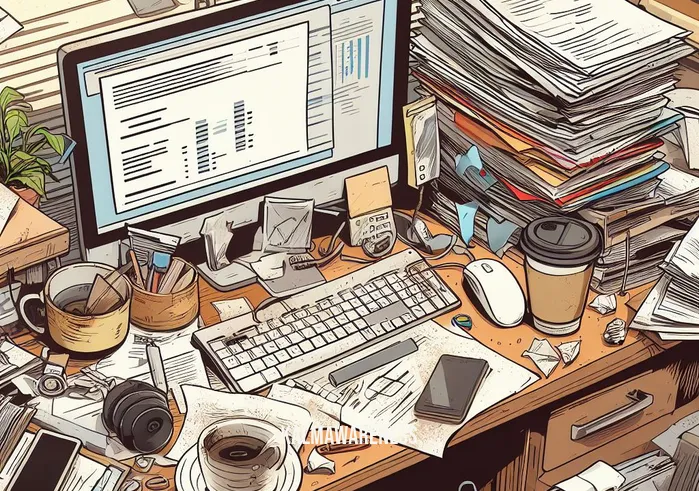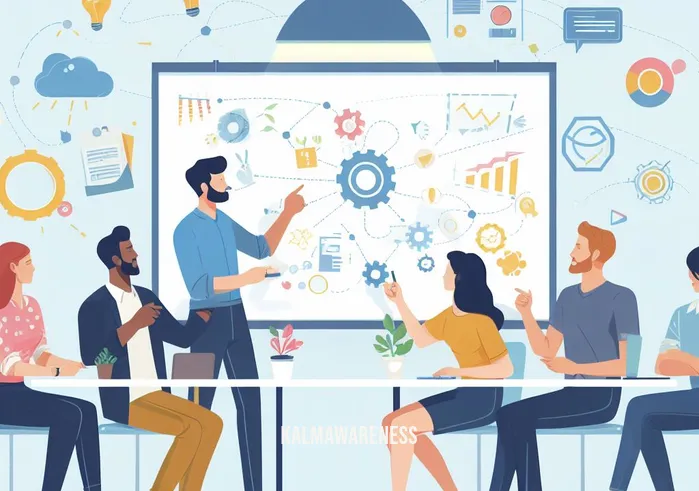Breaking Free from Mental Shackles: The Surprising Habits That Cripple Our Thinking
Have you ever caught yourself stuck in a mental rut, where new ideas seem as elusive as a mirage in a desert? It’s a common scenario, and often, the culprit is our own habits that hinder thinking. In this age of information overload and constant connectivity, recognizing and addressing these habits is not just helpful; it’s essential for our mental clarity and creativity.
The Comfort Trap: Fear of the Unknown
One of the most insidious of these habits is our tendency to cling to the familiar. It’s human nature to prefer the comfort of known paths, but this can lead to a stagnation of thought. The world is a kaleidoscope of ideas and perspectives, and by confining ourselves to our comfort zones, we miss out on this richness. Embracing the unfamiliar can be daunting, but it’s a critical step in broadening our thinking horizons. Wondering why it’s so hard to break free from the familiar? Here’s some food for thought.
The Echo Chamber Effect: Surrounding Ourselves with Sameness
In a similar vein, the environments we create for ourselves, both physically and virtually, can significantly impact our thought processes. If we’re always surrounded by people who think like us, ideas and opinions get recycled, leading to an echo chamber effect. This hinders our ability to think critically and consider alternative viewpoints. Diversifying our interactions and actively seeking out differing perspectives can open our minds to new ways of thinking. Curious about how habitual thinking shapes our reality? This article sheds some light.
The Overload Paradox: Too Much Information, Not Enough Thinking
In the digital era, we’re bombarded with an endless stream of information. While being well-informed is valuable, there’s a tipping point where too much information leads to decision paralysis and mental fatigue. It’s crucial to find a balance – to stay informed without drowning in the sea of data. This includes taking time to disconnect and reflect, allowing our brains the space to process and synthesize information. Ever feel like your mind wanders when reading? You’re not alone. Here’s why it happens.
Conclusion: A Thought-Provoking Question
So, as we navigate through the maze of habits that hinder thinking, it’s essential to remain aware and proactive in challenging these patterns. The journey towards clearer, more innovative thinking is a continuous one, filled with learning and unlearning. As you reflect on the habits discussed, consider this: How often do we mistake the comfort of familiarity for the absence of growth? Stay tuned for the next section, where we delve deeper into strategies to overcome these thinking barriers.

The Invisible Barriers: Unveiling Subtle Habits That Cloud Our Thoughts
As we continue our journey into understanding the habits that hinder thinking, it’s crucial to delve deeper into the less obvious, yet equally impactful, patterns that subtly shape our mental processes.
The Illusion of Multi-tasking: When Divided Attention Diminishes Depth
In a world that champions the ‘do more with less’ mantra, multi-tasking has become a badge of honor. However, this split-attention approach often leads to superficial thinking. Research suggests that our brains aren’t wired to handle multiple complex tasks simultaneously. Instead of multi-tasking, focusing on one task at a time can significantly enhance our ability to think deeply and creatively.
“Multitasking is a myth. It scatters our brain’s energy, leading to reduced concentration and diminished thought quality.”
Table: The Impact of Multi-tasking on Thinking
| Task Type | Single-Tasking Effectiveness | Multi-Tasking Effectiveness |
|---|---|---|
| Complex | High | Low |
| Simple | Moderate | Moderate |
This table illustrates how the effectiveness of our thinking is compromised when we try to juggle complex tasks. For more insights on how our thought patterns are affected, explore habitual thinking.
The Perils of Perfectionism: How the Pursuit of Flawlessness Stifles Creativity
Perfectionism, often seen as a desirable trait, can be a double-edged sword when it comes to thinking. The relentless pursuit of an ideal can lead to over-criticism, fear of failure, and ultimately, a hindrance in creative thought processes. Recognizing that perfection is an illusion and embracing the beauty of imperfection can liberate our minds and foster innovative thinking.
The Distraction Dilemma: Navigating the Noise of the Modern World
In an era where our attention is constantly pulled in various directions, the ability to concentrate has become a rare commodity. The bombardment of notifications, the allure of social media, and the ever-present digital chatter create a cacophony that disrupts our thought patterns. Cultivating mindfulness and learning to find focus amidst noise can significantly enhance our cognitive abilities. Wondering how to achieve this? Here’s a guide on meditating with noise.
Conclusion: A Thought for Further Reflection
By identifying and understanding these subtle yet pervasive habits, we can begin to counteract their effects and clear the fog that clouds our thinking. As you ponder the habits discussed, ask yourself: In what ways have these subtle habits influenced my thought process without my conscious realization? In the final section, we will explore practical strategies to overcome these barriers, paving the way for clearer, more innovative thinking.

Cultivating Clarity: Overcoming Mental Barriers for Brighter Thinking
As we reach the conclusion of our exploration into habits that hinder thinking, it’s essential to synthesize our insights and look forward to how we can apply these learnings to enhance our mental agility and creativity.
Embracing Change: The First Step to Mental Liberation
Change is often uncomfortable, but it’s a necessary catalyst for growth. Breaking free from the chains of habitual thinking requires an open mind and a willingness to challenge our established patterns. It’s about being mindful of our tendencies towards comfort, perfectionism, and distraction, and consciously steering our thoughts towards more productive paths.
Actionable Strategies: Practical Steps to Sharpen Your Thinking
To transform our understanding into action, consider these practical strategies:
- Embrace Single-Tasking: Focus on one task at a time to enhance depth and quality of thought.
- Practice Mindfulness: Regular mindfulness practices can improve concentration and clarity.
- Seek Diverse Perspectives: Actively engage with ideas and people different from your usual circle.
- Set Information Boundaries: Limit exposure to overwhelming streams of information.
- Cultivate Creative Discomfort: Step outside your comfort zone to foster innovation and creativity.
A Path Forward: Anticipating Future Scenarios
Imagine a future where these strategies are part of our daily routine. How would this shape our problem-solving abilities? How would it affect our creativity and decision-making? The potential for growth is immense. For a deeper dive into developing these habits, explore patterns of thought.
Engaging Conclusion: Encouraging Ongoing Exploration
As we conclude, consider how these habits have played a role in your life. Are there areas where you can apply these strategies to enhance your thinking? Remember, the journey towards clearer thinking is ongoing and ever-evolving.
- Reflection Point: What is one habit you can start changing today to improve your thinking?
Summary in Bullet Points
- Embrace single-tasking for deeper, more effective thinking.
- Practice mindfulness to enhance focus and clarity.
- Seek diverse perspectives to broaden your cognitive horizon.
- Set boundaries around information intake to prevent overload.
- Cultivate creative discomfort as a means to innovate and grow.
Final Thoughts and Call-to-Action
Our exploration of habits that hinder thinking is just the beginning. I encourage you to continue this journey of self-improvement and mental liberation. For more insights and strategies, visit Kalm Awareness and delve deeper into the fascinating world of cognitive enhancement. Remember, the path to clearer thinking is paved with curiosity, openness, and a willingness to challenge the status quo. Let’s embark on this journey together!




